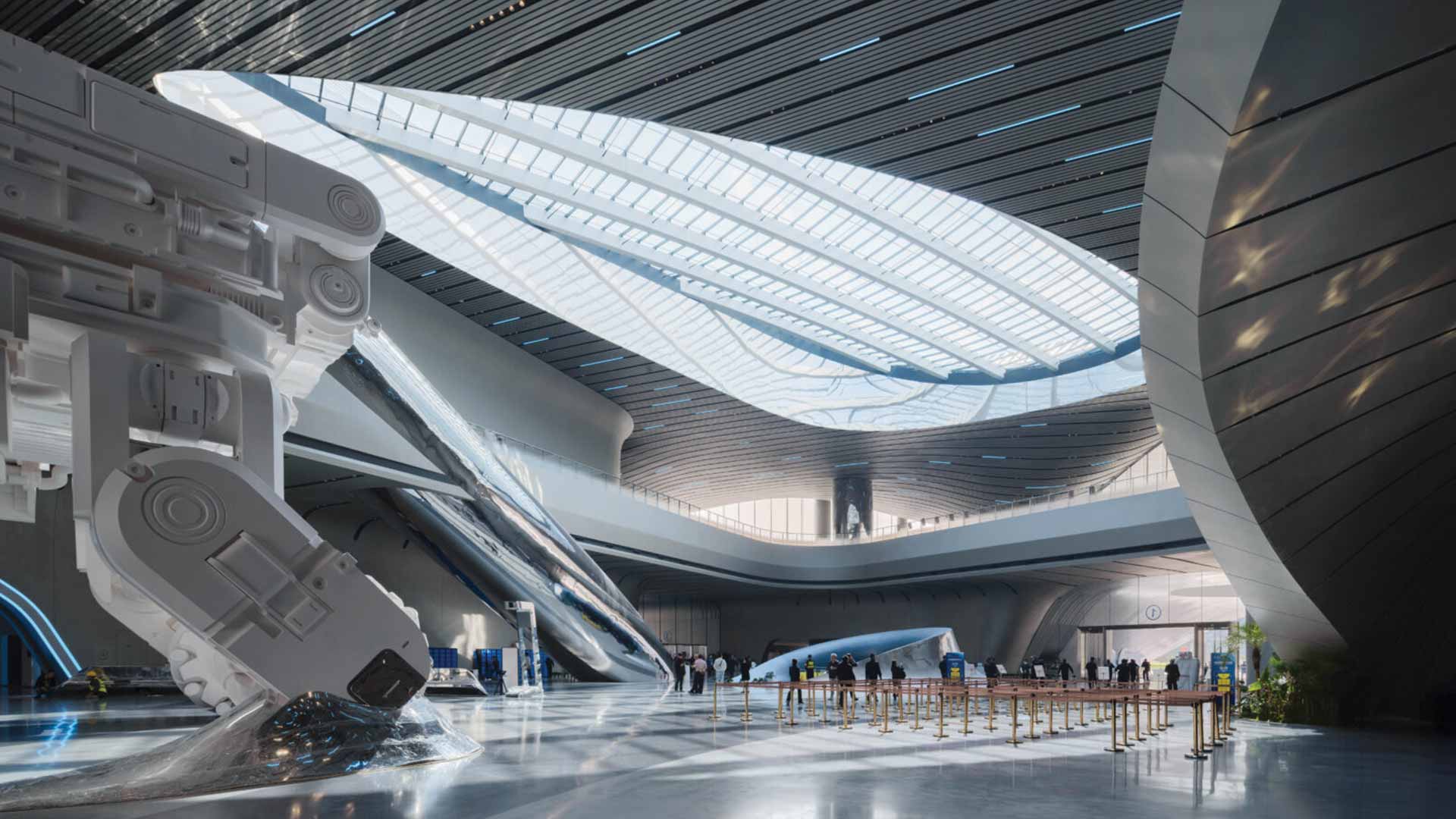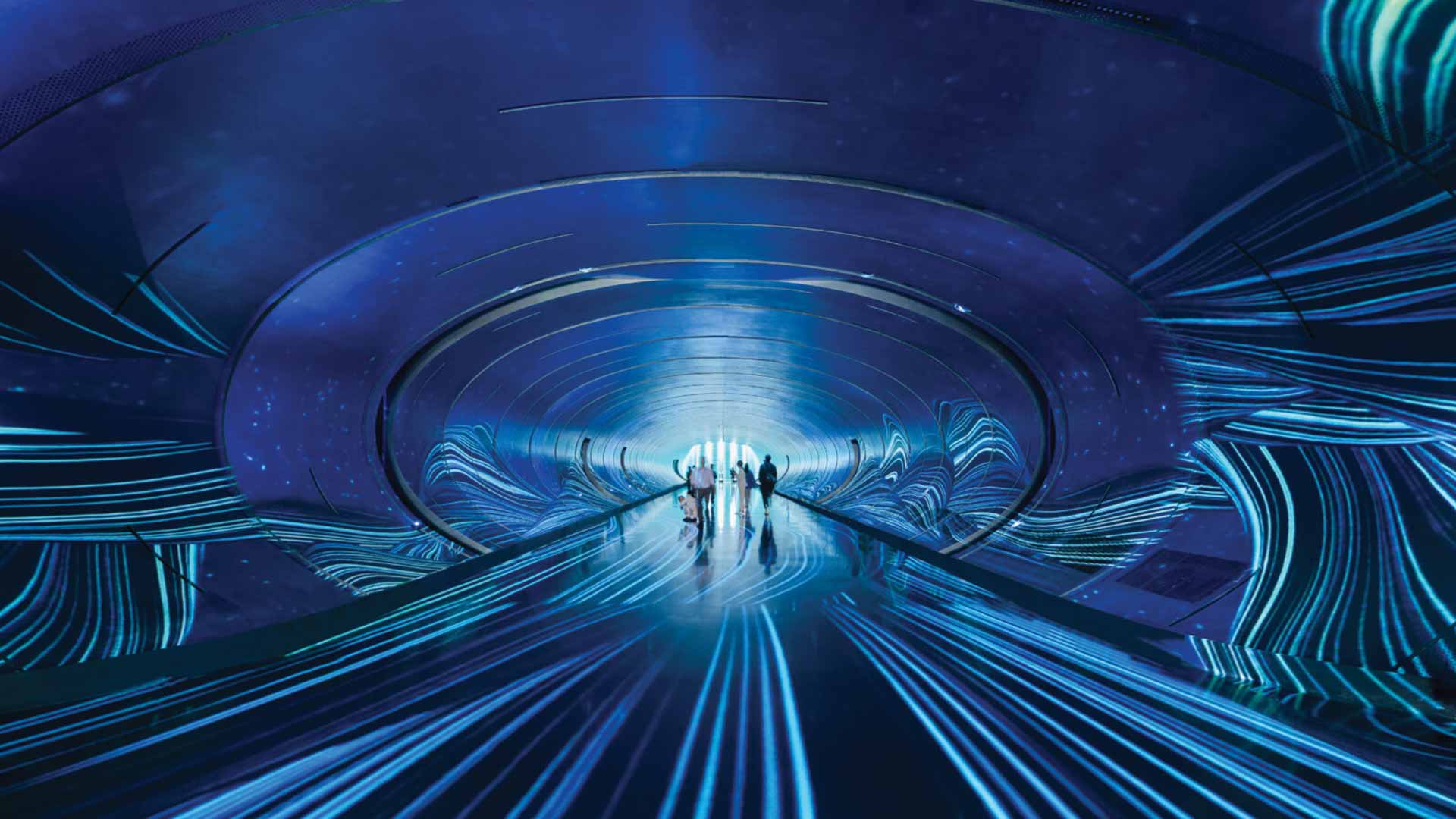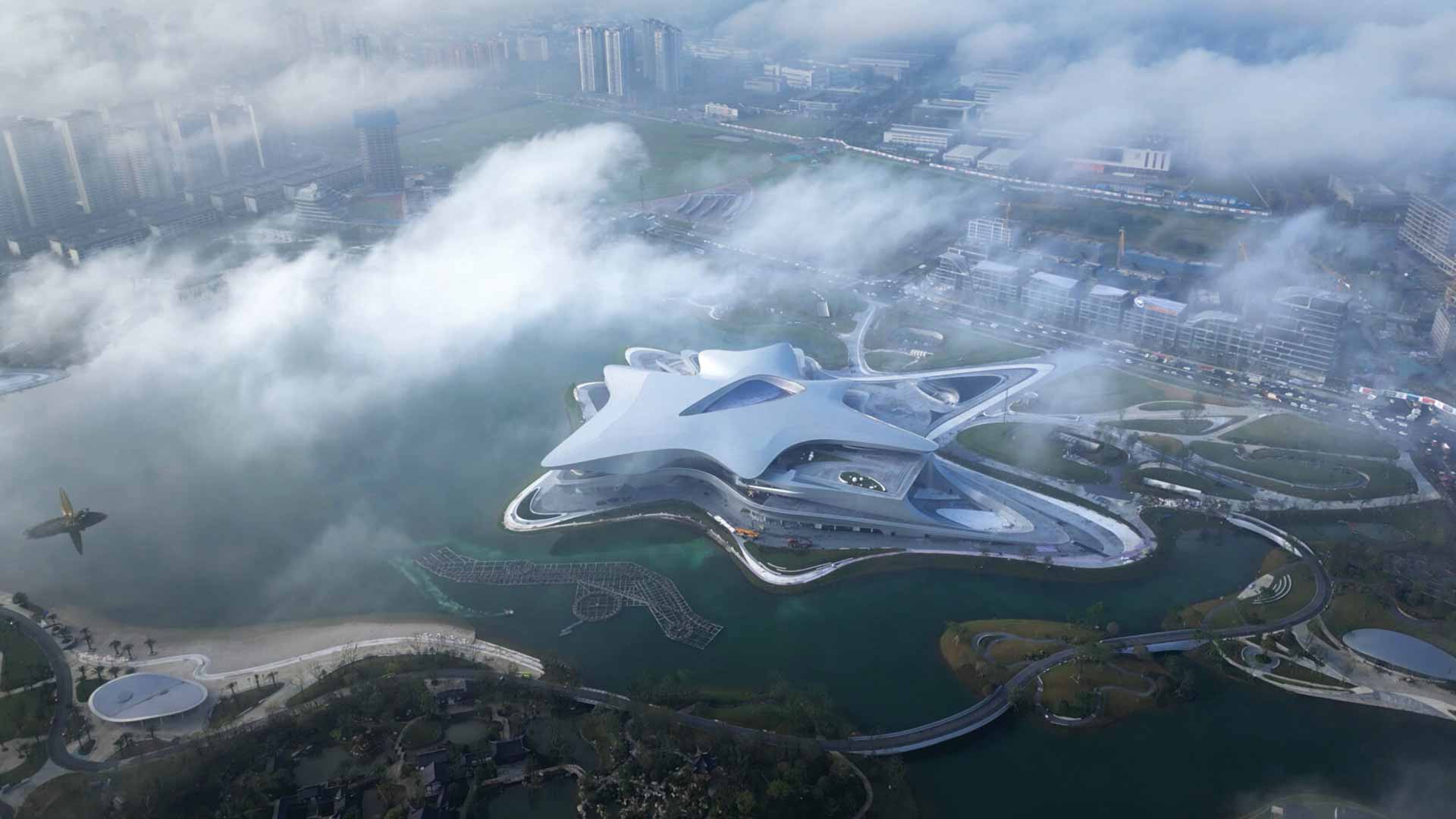China’s Infrastructure Goes to Galactic Oddity
In a universe far, far away (also known as Chengdu, China), a curious spectacle has emerged on the shores of Jingrong Lake. It’s the Chengdu Science Fiction Museum, a structure so audaciously futuristic that it seems to have warped in from another dimension, leaving a trail of stardust in its wake. Designed by the universally famous Zaha Hadid Architects, the museum does what any self-respecting piece of architecture in the 21st century should do: it defies gravity, logic, and convention.
At first glance, the museum resembles a starship that’s made an emergency landing on a serene Chinese lake. It’s a bold, swirling mass of metal and glass, with a roof that ripples like a cosmic jellyfish. This ‘star cloud’, as the architects fondly call it, is an ode to the boundless imagination of science fiction.
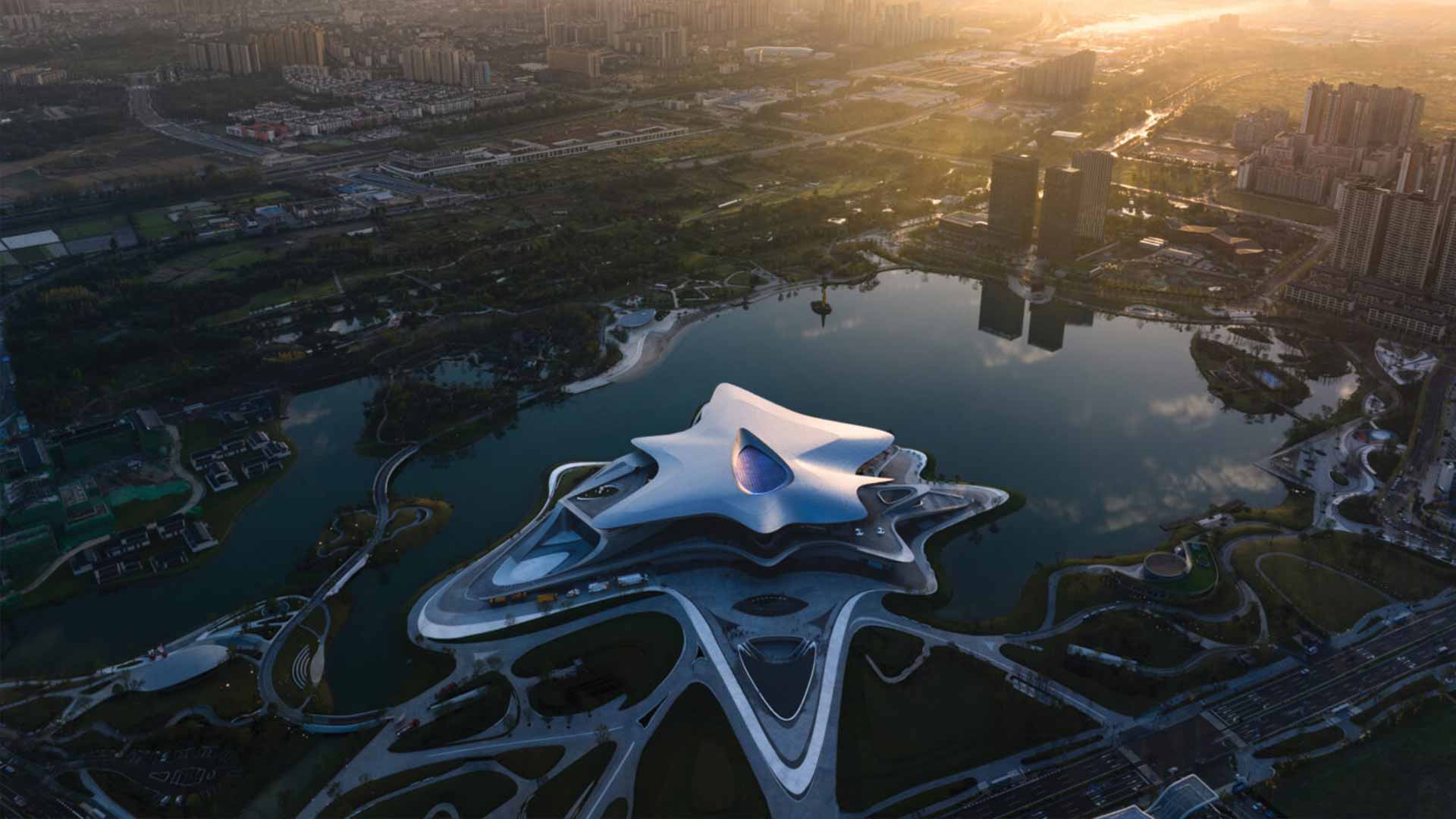
The museum’s interior is no less dramatic. With its sprawling, multi-level galleries, it feels like a maze designed to entertain particularly whimsical aliens. One could easily imagine getting lost in its corridors and stumbling upon a secret conference of intergalactic diplomats. The central atrium, lit by a skylight that could double as a portal to another world, connects the terrestrial with the celestial. It’s here, under the gaze of the Xiling Mountain, that Earthlings can ponder the mysteries of the universe, or at least, where to get a decent cup of coffee in this labyrinthine complex.
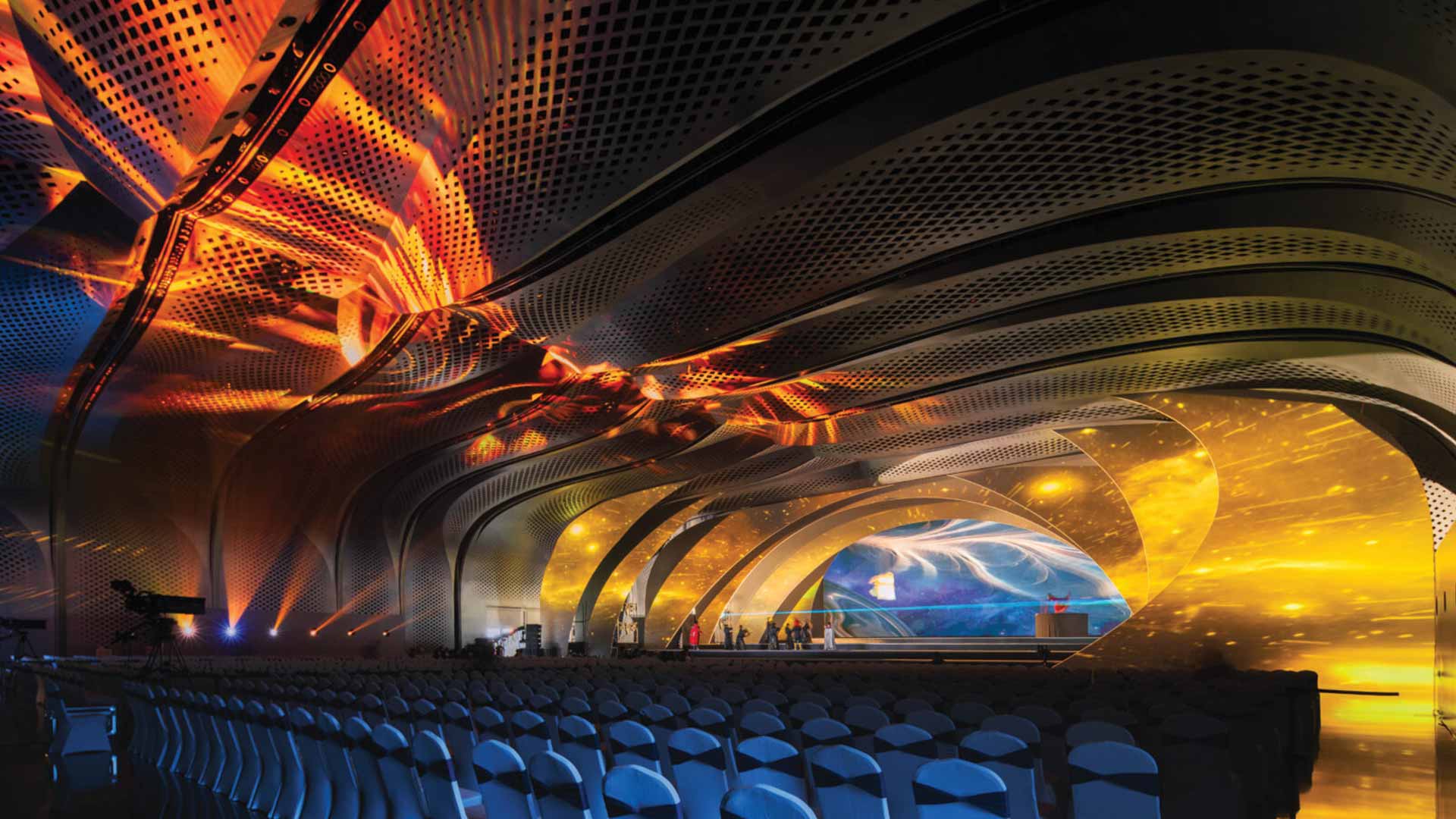
Chengdu is an incredible place, with a population triple that of New Zealand and a burgeoning tech industry. The time it took to construct this bizarre piece of architecture is also incredible. It was only just commissioned in 2022, and it was up and running in 12 months. It’s three times the size of the Sydney Opera House, which took 14 years. Although in their defence they barely knew what they were even making when they were constructing the Sydney Opera House. The Sky Tower in Auckland took two years in 9 months, and that’s just a vertical sewer drain with a restaurant rotating on a lazy susan.
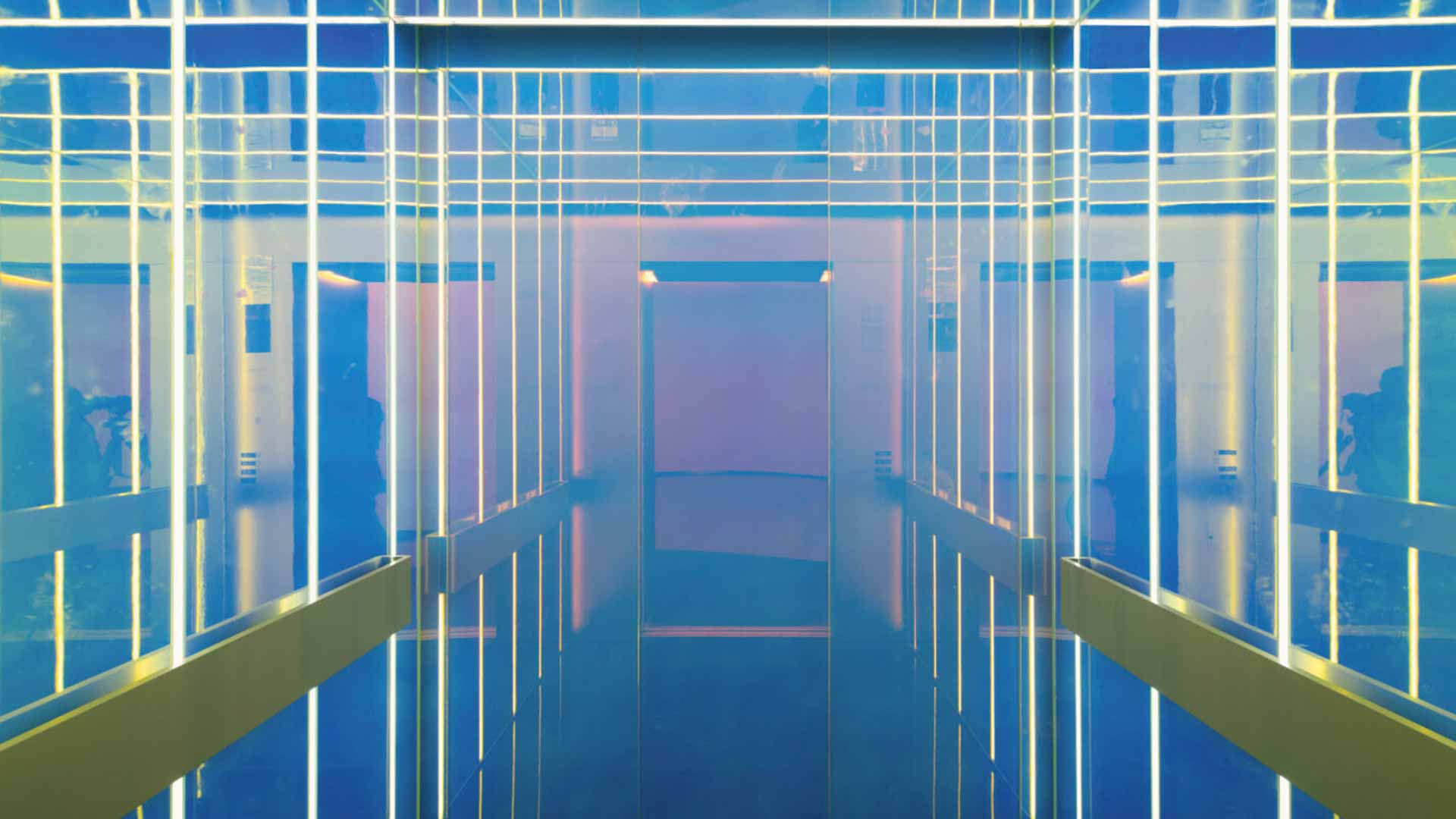
Hosting the World Science Fiction Convention (Worldcon) and the Hugo Awards, the museum has put Chengdu on the galactic map. This is no small feat for a city previously known more for its spicy hotpot and adorable pandas than its contributions to interstellar discourse. It’s a statement: Chengdu is not just a cradle of ancient Chinese culture, but also a launchpad for futuristic fantasies.
